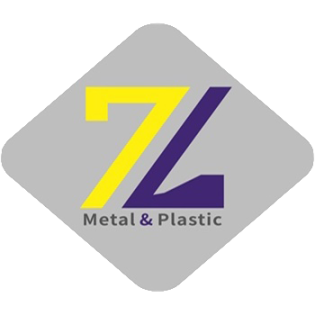Aluminium Die-Casting
Aluminum die-cast products refer to parts produced through the aluminum die-casting process. The process involves injecting molten aluminum alloy into a steel mold under high pressure. Once the molten metal solidifies, the mold is opened and the solidified part (also called a casting) is ejected.
Are known for their excellent dimensional accuracy, smooth surface finish, and high production efficiency. Due to their unique properties and advantages, they are widely used in various industries.
The aluminum die casting process involves several steps. First, the aluminum alloy is melted in a furnace and impurities are removed to achieve the desired purity level. Molten metal is then injected into the mold cavity under high pressure using a pressure casting machine. This high pressure helps fill molds quickly and enable detailed and intricate designs. Once the metal solidifies, the mold is cooled and the casting is ejected. Castings may undergo further processing such as trimming, machining, surface treatment and quality inspection.
Aluminum profiles are widely used in various industries for their versatility, durability, and lightweight properties. They can be found in construction, transportation, electronics, and many other applications. While aluminum itself possesses corrosion resistance and a smooth surface, surface treatments are often applied to enhance its appearance and properties. Some common surface treatments for aluminum profiles include:
Lightweight: Aluminum is known for its lightweight properties, making it ideal for applications where weight reduction is critical, such as the automotive and aerospace industries. The lightweight nature of aluminum die-cast products helps improve fuel efficiency and reduce overall costs.
High Strength: Despite their light weight, aluminum die-cast products offer excellent strength and structural integrity. This property makes them suitable for applications where strength and durability are critical.
Complex Shapes: The die-casting process can produce complex shapes with high dimensional accuracy. This flexibility enables the fabrication of complex parts that are not easily achievable through other manufacturing methods.
Multiple Surface Treatments: Aluminum die-cast products can be easily customized to achieve a variety of surface treatments. These surface treatments can include polishing, painting, anodizing or powder coating to enhance the aesthetics and corrosion resistance of the part. Cost Effective: Aluminum die casting is an efficient and cost-effective manufacturing process. High productivity, reduced material waste and simplified assembly processes contribute to its cost-effectiveness.
There are a variety of aluminum alloys used in the die casting process, each with its own unique characteristics and properties.
Some commonly used die-cast aluminum alloys include:
A380: is the most commonly used aluminum alloy for die casting. It has excellent castability, good mechanical properties and high thermal and electrical conductivity. The A380 is widely used in the automotive, electrical and consumer goods industries.
ADC12: This alloy has good fluidity and castability and is suitable for producing complex shapes. It has applications in the automotive and electrical industries.
A413: A413 alloy is known for its excellent corrosion resistance and is often used in applications where corrosion is a concern, such as marine components and outdoor equipment.
A360: This alloy has excellent pressure resistance and corrosion resistance. It is used in applications such as engine blocks, transmissions and hydraulic components. The applications of aluminum die-cast products are wide and varied. They are widely used in automotive manufacturing to produce engine components, transmission components and structural components. In the electrical industry, aluminum die castings are used in the production of electrical enclosures, connectors and radiator housings. Other application areas include aerospace, consumer products, defense, telecommunications and machinery industries. In summary, aluminum die-cast products are components or parts manufactured through a die-casting process using various aluminum alloys. The process offers numerous advantages, such as lightweight, high strength, complex shapes, customizable finishes, and cost-effectiveness. There are many types of aluminum alloys, and die-cast aluminum products are used in many industries.
